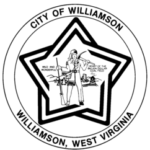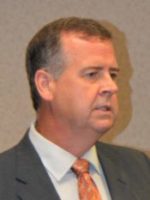 If a contest was held for the least transparent city government in the U.S., the small town of Williamson, West Virginia would have to be considered a strong contender.
If a contest was held for the least transparent city government in the U.S., the small town of Williamson, West Virginia would have to be considered a strong contender.
Williamson’s latest turn to the dark side came last week, when its city council held a “special meeting” to pass the first draft of its 2018-19 budget. According to Travis Crum of the Williamson Daily News, the council approved the budget and submitted it to the State Auditor’s Office “after receiving no public input and holding little discussion amongst themselves” about the fiscal plan.
Here’s more from Crum, a deft purveyor of understatement:
Williamson Mayor Charlie Hatfield did not mention there would be a public meeting about the budget during the city’s regular meetings this month. He emailed the newspaper an agenda for the special meeting on Monday but listed the incorrect date.
No one from the public attended Tuesday’s meeting except for two newspaper reporters. Williamson Fire Chief Joey Carey was the city’s only department head in attendance. Council members reviewed the budget for approximately 10 minutes before voting to approve it, having spent a majority of the meeting in executive session to discuss personnel.
City Clerk Meredith Anderson said ongoing issues with the city’s email server prevented her from emailing a digital copy of the budget. She is not currently using her city-issued email and hand-delivered a copy to the newspaper on Tuesday to run with required legal advertising.
We know from Crum’s dogged reporting that the city has been making a habit of doing its business in secret since Hatfield, the owner of a local real estate company, was elected mayor last June.
In fact, just three weeks before the opaque budget meeting, the city failed to notify residents about a special election it held to approve an excess levy to provide funding for facilities and programs at city parks. State law requires municipalities to publish sample ballots in a newspaper twice before an election; the city of Williamson published none.
Mayor Hatfield blamed the lack of notice on email issues, but the dearth of information provided to Williamson citizens about the vote extended beyond legally mandated notice. In the two months leading up to the special election, the excess levy was rarely addressed during city council meetings.
According to Crum, the city first announced it would hold an election on the levy during a council meeting in January. At another meeting the following month, the counsel established polling locations and approved poll workers. But it wasn’t discussed again until the tail end of a meeting the day before the vote, when council member Sherri Hairston-Brown asked the mayor after his closing remarks why he hadn’t mentioned it. Hatfield said he assumed one of the council members would bring it up.
And that was the extent of the city’s discussion on the special tax. The levy passed by a vote of 89-2. By comparison, almost three times as many Williamson citizens voted nine months earlier in the mayoral election. The city’s population in 2016 was 2,924, according to a U.S. Census estimate.
Hatfield (photo on right) told Crum he’ll leave any questions about the election’s legality up to the Secretary of State’s Office.
The mayor wasn’t as cavalier about legal issues last October, when he and the city council were forced to vote on three separate occasions to comply with state law in carrying out the dismissal of Police Chief Barry Blair.
The saga began at the council’s regular meeting on Sept. 28, when the council went into a lengthy executive session and invited Blair to join them for a portion of the closed meeting. It later emerged that the council had been discussing Blair’s employment and when he left the room they voted on whether to fire him. What transpired during the vote is a matter of dispute, which is the kind of thing that can happen when a vote is secret. What isn’t in dispute is that Hatfield ended the secret meeting by telling council members he was going to fire Blair. He did that four days later, which is when the public first learned about it.
After Hatfield discovered he needed legislative approval to fire the mayor, the council headed back into executive session two weeks later and voted 3-1 to uphold his decision. Problem was, state law in West Virginia doesn’t allow government officials to vote in secret. When he learned this, Hatfield blamed it on bad advice from the city attorney and scheduled a third vote. He called the open meeting violation an unintentional “procedural error.”
The council finally voted on the matter in public at its meeting two weeks later, approving the mayor’s decision to fire Blair by a vote of 2-1. Just for good measure, the council violated the state’s open meetings law later in the meeting by approving Hatfield’s motion to temporarily appoint a new city attorney, which wasn’t on the official agenda.
In some respects, the state of West Virginia sets a low bar for open meetings. For instance, it is one of the only states in the country that doesn’t require state agencies and local government units to provide notice of public meetings via newspaper ads. But Williamson still finds a way to limbo right under that low bar.
The city was recently the focus of a national news story about the opioid crisis. And Crum’s reporting makes it clear that problems with the government in Williamson go far beyond its lack of transparency. Nevertheless, the city’s clear preference for conducting business in secret raises an important consideration for policy makers pressing to move local notice from newspapers to government websites:
Do you really trust cities like Williamson, West Virginia to faithfully discharge the sacred responsibility of informing the public?
Travis Crum’s reporting used for this story:
• City releases budget, revenues trend downward (March 30)
• City’s email trouble cited in lack of notice on levy vote (March 18)
• Questions arise in purchase of police uniforms (Nov. 8, 2017)
• Mayor affirms voting power on council (Oct. 25, 2017)
• City council holds special meeting to fire Blair again (Oct. 20, 2017)
• Council violated open meeting laws with vote (Oct. 15, 2017)
• Williamson Police Chief Blair fired (Oct. 2, 2017)
